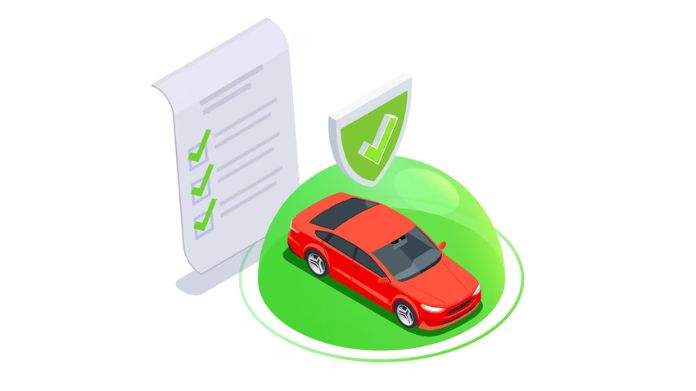Unforeseen automobile collisions can result in severe financial consequences. With the exponential rise in traffic and unpredictable road conditions, accidents can occur at any given moment.
Therefore, it is imperative for vehicle owners to possess civil car coverage insurance in order to safeguard themselves and others in the event of an unexpected incident.
Within this guide, Techspunk will explore the concept of civil automobile coverage, its implications on insurance, and its legitimacy, and also provide Civil Auto Coverage reviews.
Table of Contents
What is Civil Car Coverage Insurance?
 Civil car coverage, also referred to as civil liability coverage, is an insurance policy that provides financial protection to drivers in the event of accidents or incidents that result in harm to others and damage to their property.
Civil car coverage, also referred to as civil liability coverage, is an insurance policy that provides financial protection to drivers in the event of accidents or incidents that result in harm to others and damage to their property.
This type of coverage is essential in reducing the financial risks associated with car accidents, theft, and other damages, both for the insured party and for any third parties who may be affected by the insured’s vehicle.
It serves as a safeguard, ensuring that you do not bear the financial burden of legal and compensation claims in the unfortunate event of an incident on the road.
The significance of having adequate insurance cannot be overstated. Not only is it a legal requirement in many jurisdictions, but it is also a fundamental aspect of financial and personal security.
Civil Auto coverage reviews consistently affirm its essential role in personal finance and safety by addressing a broad spectrum of potential liabilities and damages.
It enables individuals to navigate the complexities of modern transportation with confidence and protection, providing peace of mind in an unpredictable world.
Evaluating the Pros and Cons of Civil Car Coverage Insurance
Evaluating Civil Auto coverage reviews helps in understanding the advantages and disadvantages of Civil Car Coverage Insurance.
By examining the different aspects of auto insurance that safeguard against civil liabilities and damages through Civil Auto coverage reviews, individuals can make well-informed choices regarding the level and kind of coverage to acquire.
Below is a summary of the perks and potential downsides linked to this insurance coverage.
Pros
- Financial Security: Liability coverage shields you from the costs of injuries and damages to others in an accident, preventing financial strain.
- Legal Compliance: It ensures you meet legal driving requirements, avoiding fines for uninsured driving.
- Peace of Mind: Comprehensive and collision insurance protects your vehicle against damages, theft, and disasters.
- Protection Against Uninsured Drivers: This coverage defends you financially if hit by drivers lacking adequate insurance.
- Coverage for Personal Injuries: PIP and Medical Payments coverage support you with medical costs, lost wages, and more following an accident.
Cons
- Expensive: Comprehensive insurance can be expensive, especially for high-risk drivers or those with costly vehicles, leading some to opt for the minimum required coverage.
- Not always necessary: The cost of comprehensive and collision coverage may not be worth it for older, low-value vehicles.
- Complex Policies: Insurance policies can be hard to understand, with deductibles, limits, and exclusions complicating what’s covered.
- Potential for higher premiums: Filing claims, particularly for at-fault accidents, may lead to increased premiums, making insurance pricier over time.
Types of Civil Coverage Car Insurance
Civil Coverage Car Insurance encompasses various types of insurance policies designed to protect vehicle owners and drivers from financial losses.

Here’s a brief overview of each type:
- Liability Insurance:
- Bodily Injury Liability: This covers medical expenses, lost wages, and legal fees for injuries you cause to others in an accident.
- Property Damage Liability: Pays for damage to someone else’s property, such as their vehicle, fence, or building, resulting from an accident you cause.
- Comprehensive Coverage: Offers protection against non-collision-related damage to your vehicle, such as theft, vandalism, fire, natural disasters, and hitting an animal.
- Collision Coverage: Covers damage to your vehicle from a collision, regardless of who is at fault, including collisions with another vehicle or object (like a tree or guardrail).
Civil Auto Coverage Reviews: Is Civil Car Coverage Legit?
Yes, the concept underlying “Civil Car Coverage ” is legitimate if it refers to various types of auto insurance, such as liability, comprehensive, collision, and other related coverages.
These insurance types play a vital role in offering financial protection against expenses related to vehicle accidents, theft, and damage.
As part of a regulated industry, they provide essential financial security for both vehicle owners and drivers.
In many regions, legal requirements mandate specific types of coverage, such as liability insurance, to ensure that all drivers can bear the costs of damages or injuries they may cause to others.
Reading Civil Auto coverage reviews can help you identify reputable insurance providers and understand the specifics of your policy, ensuring you have the right coverage for your needs.
Frequently Asked Questions
Q. What is Meant by “Civil Car Coverage”?
Ans. Civil Car Coverage typically refers to various types of auto insurance policies, including liability, comprehensive, collision, and more, that protect against financial losses due to accidents, theft, and other vehicle-related incidents.
Q. Is Civil Car Coverage Necessary?
Ans. Yes, it’s necessary for financial protection and legal compliance. Many regions require certain types of car insurance, like liability coverage, to drive legally.
Q. What Does Civil Car Coverage Include?
Ans. It generally includes liability insurance (covering bodily injury and property damage to others), comprehensive (non-collision damage), collision (damage from accidents), and may also include uninsured/underinsured motorist coverage, personal injury protection, and more.
Q. How Do I Know if My Civil Car Coverage Is Legitimate?
Ans. Ensure the insurance provider is licensed and reputable. Check their financial stability and customer service records, and read policy details carefully.
Q. Can I Drive Without Civil Car Coverage?
Ans. Driving without the legally required insurance (usually liability coverage) is illegal in most places and can result in fines, license suspension, and other penalties.
Q. How Do I Choose the Right Civil Car Coverage?
Ans. Consider your vehicle’s value, your driving habits, and your financial situation. Then, contact a licensed insurance agent who can help you select coverage that meets your needs and legal requirements.
Final Verdict
To sum up, opting for civil car coverage insurance is a dependable and all-encompassing option to safeguard your vehicle against unexpected accidents, damages, and theft. It is essential for every car owner to have insurance that offers protection against legal liability.
Take the time to assess its advantages and disadvantages, carefully consider its key features, and make a well-informed choice to obtain the most suitable policy.
By doing so, you will not only be financially protected but also ensure that you comply with the law in case an accident happens due to your fault and causes harm to others.





